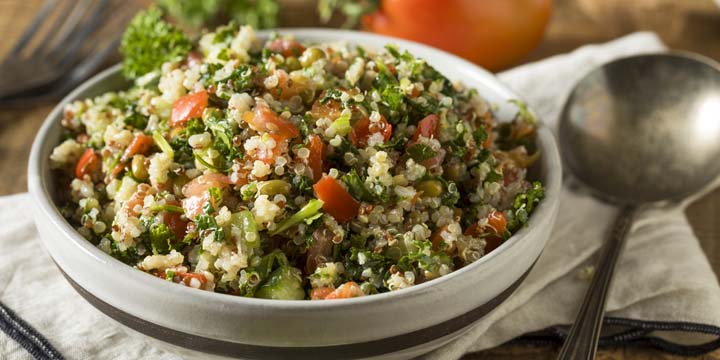
What’s the connection between diabetes and naked carbs? If you have diabetes, you know diet plays a vital role in controlling blood sugar levels and keeping you as healthy as possible. One way to avoid blood sugar spikes is to learn about naked carbs and how to minimize their impact on your body.
What are naked carbs?
The term ‘naked carbs’ is fairly new and is used to describe simple carbohydrates. Simple carbs are basically simple sugars that are digested quickly by the body. You’ll find these sugars naturally in some fruits, milk and in honey. They are also in many refined and processed foods such as candy, soda, cakes, donuts, some crackers and white bread.
Why do naked carbs matter for blood sugar control?
The issue with naked carbs, is how quickly they are absorbed by the body. These carbs are rapidly processed by your digestive system where they are broken down into glucose. Our bodies need glucose for fuel, but naked carbs release too much of this fuel all at once. When you eat naked carbs, a surge of glucose hits your bloodstream leading to a rapid elevation in blood sugar (blood glucose) levels.
When you have diabetes, blood sugar spikes are much harder to regulate and bring down. If your body doesn’t produce insulin or enough insulin, it can take longer for your insulin or other diabetes medications to bring your blood sugar levels back to your target range.
Maintaining consistent blood sugar levels is key to preserving your health and avoiding complications. A rapid spike in blood sugar – which can be caused by eating naked carbs – may lead to fatigue, blurry vision, and other symptoms. Over time, high blood sugar levels (hyperglycemia) can lead to serious complications if left untreated. These include heart disease, and damage to the nerves, eyes, and kidneys.
How can you balance or ‘dress up’ naked carbs?
The best way to reduce the impact of naked carbs, is to pair them with another food that helps to slow down glucose absorption. The best way to do that, is to add foods with fibre, protein or fat to your meal.
Instead of eating plain crackers for a snack, try layering on some peanut butter or hummus. If you enjoy toast for breakfast, add a boiled egg or avocado to your meal. Prepare a rice dish for dinner with chicken, beef or tofu – and of course lots of vegetables. These extra nutrients mix with the simple carbs, to better control the flow of blood sugar into your body.
You can also add fibre to your meal by having more fresh fruit instead of relying on fruit juice. Whole grains are also beneficial, such as whole grain bread or crackers. Try to include brown rice and legumes as well, like lentils and chickpeas.
When might it be okay to eat naked carbs?
As a general rule, people with diabetes should avoid eating naked carbs as much as possible. There are, though, exceptions to that rule. Here are a couple of situations where you may benefit from the blood sugar spike that naked carbs provide. (Please check with your diabetes healthcare team first, to ensure these choices are right for you.)
If you are set to take part in a vigorous tennis match or a long run, naked carbs can provide a quick burst of energy. Athletes may need some naked carbs before or during high-intensity activities.
Another example is, if your blood sugar has dropped too low, and you are feeling the effects of hypoglycemia. Drinking a glass of juice can raise your blood sugar levels quickly back to target range.
What are some better snack options for blood sugar control?
Healthy snack options start with choosing foods that are high in protein, fibre and healthy fats. Snacks that help with blood sugar control include:
- Whole grain crackers and peanut butter
- A handful of almonds
- Yogurt and berries
- Vegetables and hummus
- Air-popped popcorn
Living with diabetes means keeping a close eye on your health and your meal choices. Learning how to avoid naked carbs can help you maintain more consistent blood sugar levels and improve your health outcomes. You can still enjoy many of your favourite foods, as long as you ‘dress up’ your naked carbs. A few small diet adjustments can go a long way.


